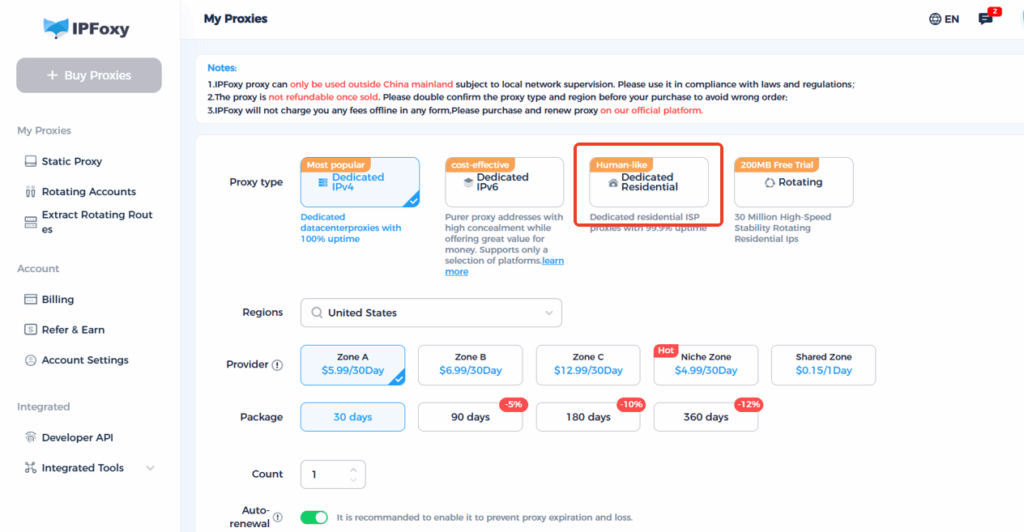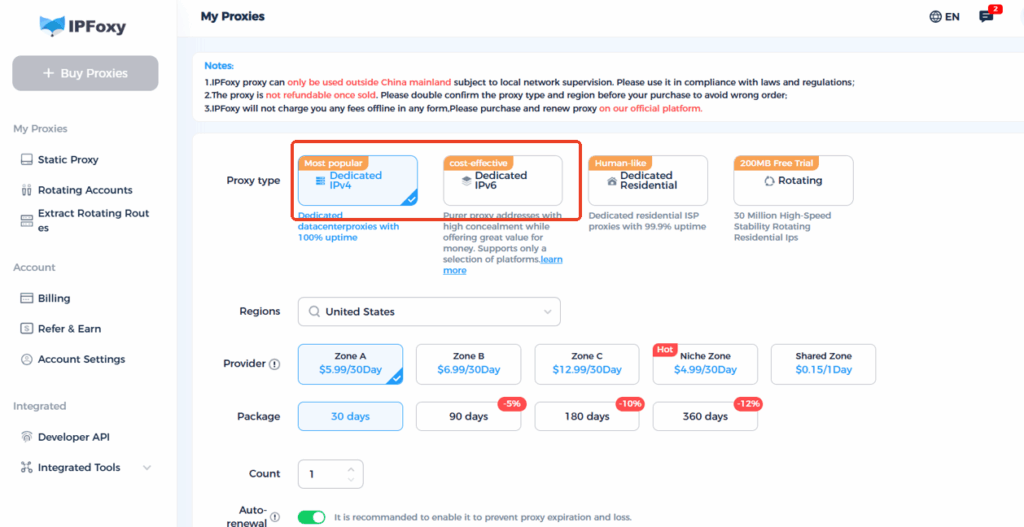When first choosing an IP for e-commerce , many sellers struggle with the same question: Should I go for a static residential IP or a static datacenter IP?Both have their pros and cons, and the best choice depends on your specific needs and use cases. Here’s a detailed comparison to help you find the most suitable option for your business.
I、Static Residential IP: Real User IP Address
Features:
- Real residential IPs: These IPs come from real household networks. Providers obtain them through cooperation with local internet service providers (ISPs), similar to telecom or mobile carriers.
- Lower risk of bans: Since these IPs belong to real users, they are less likely to be flagged or blocked by websites and platforms.
- Higher trust level: Many websites and online services trust residential IPs more because they resemble normal user activity patterns.
Use Cases:
- Social media management: Ideal for managing multiple accounts or performing frequent actions on platforms like TikTok, Instagram, or WhatsApp while avoiding bans.
- Purchasing and registration: Reduces detection and blocking risks when frequently buying or registering on websites.
- Localization testing: Perfect for simulating real user environments and accessing localized content during market research.

II、Static Datacenter IP: IPs from Data Centers
Features:
- Data center origin: These IPs are assigned from data center servers, typically used for enterprise-level applications.
- High performance: Datacenter IPs provide higher bandwidth, faster connections, and greater stability — ideal for large-scale or high-performance tasks.
- Centralized management: As these IPs come from the same data center, they are easier to manage and configure for large-scale operations.
Use Cases:
- Large-scale data collection: Best suited for massive data scraping or automated tasks requiring speed and consistency.
- Enterprise applications: Commonly used for online trading, data processing, and large-scale advertising.
- Network security: Useful for security testing or firewall configurations, offering stronger control and management capabilities.

III、Comparison Summary
- Performance:
Static datacenter IPs deliver higher speed and bandwidth, making them suitable for heavy workloads. Residential IPs are stable but generally slower. - Risk & Trust:
Residential IPs, sourced from real households, have a lower risk of being blocked and are more likely to gain trust from websites.
Datacenter IPs, due to centralized management, might face higher blocking risks on certain platforms. - Cost:
Datacenter IPs are usually cheaper than residential ones and deliver better speed, but they require more careful management to avoid bans or blacklists — suitable for users with limited budgets and low authenticity requirements.
IV、Conclusion
Your choice between static residential and static datacenter IPs depends on your goals:
- For speed and performance, choose datacenter IPs.
- For trust and lower risk of bans, go with residential IPs.
Hopefully, this comparison helps you understand the differences between the two and make the right decision for your business. If you found this helpful, like, save, and share — I’ll keep sharing more insights for cross-border sellers!


